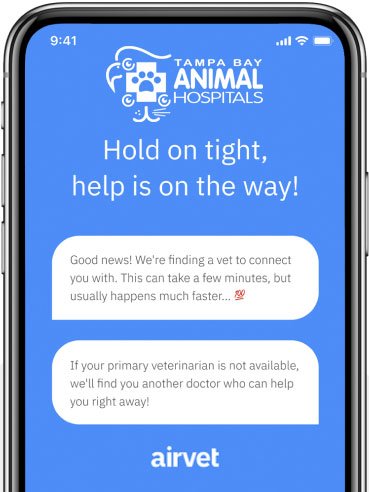I love my dog, but when he licks me, his breath is horrible! What can I do about it?
Periodontal Disease is one of the most common reasons for our pets to have bad breath. Periodontal disease is the infection of the gums and bones around the teeth. The infection starts with bacteria growing in a soft film of plaque covering the teeth. Over time the plaque mineralizes and hardens into tartar or calculus. Tartar is an ideal place for more plaque and bacteria to accumulate, creating a downward spiral in your pet’s dental health. Just imagine what our breath would smell like if we didn’t brush our teeth every day!
In addition to bad breath, poor dental care can lead to a variety of health problems for your pet. Infected teeth are painful. Frequently I get phone calls from clients after their dog has had their teeth cared for at our clinic, exclaiming that their dog is like a puppy again. Can you imagine walking around with a toothache all the time? Also, these bacteria leak into the blood stream so your pet is constantly fighting an infection. This makes them feel tired and sick. Most importantly, bacteria in the bloodstream can lodge in the kidneys, heart, and liver causing damage to these organs.
The best thing you can do for your pet’s mouth is regular brushing. This prevents accumulation of plaque and the formation of tartar. (Brushing cannot remove tartar once it has formed.) For puppies and kittens, start brushing at 8 weeks of age and make it a fun activity with praise and treats. Chews and prescription dental diets have also been proven to help cut down on plaque and tartar. To see a list of chews and foods approved by the Veterinary Oral Health Council check out www.VOHC.org. Use caution with hard chews or bones as they can lead to broken teeth or an intestinal foreign body.
Dental Cleaning by Your Veterinarian – In order to do a thorough exam and teeth cleaning your pet will have to be under anesthesia. In general, a dental procedure involves an oral exam (checking for pockets, loose teeth, or other abnormalities in the mouth), scaling or scraping the tartar from the teeth and under the gums, and polishing the teeth. X-rays may be needed to look at the tooth roots and surrounding bone. Sometimes additional procedures are performed such as extractions or biopsies. Veterinary dentists do even more complex procedures like root canals, jaw surgery and orthodontics. Regular cleanings help to keep periodontal disease under control.
Talk to your veterinarian about how to best care for your pet’s teeth and maybe those pet kisses will be more delightful!


